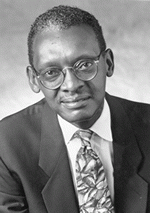 Who do you think you are? Are you a post-racial advocate that feels race is no longer significant or important in American society? How did you answer the US 2010 Census Form Question No. 9: "What is Person 1's race?" The race question's choices are: "White; Black, African-American, or Negro; American Indian or Alaska Native."
Who do you think you are? Are you a post-racial advocate that feels race is no longer significant or important in American society? How did you answer the US 2010 Census Form Question No. 9: "What is Person 1's race?" The race question's choices are: "White; Black, African-American, or Negro; American Indian or Alaska Native."
Maybe a better question in how African Americans/Blacks/Negroes identify is consideration of: "Just how White is we"? When the first United States Census was taken in 1790, Africans (including slaves and free people) numbered about 760,000 and were 19.3 percent of the population. During the first 200 years of their "sojourn" in the US, our forefathers referred to themselves as Africans. In Africa, people primarily identified themselves by ethnic group (closely aligned with language) and not by skin color. Over the years, Africans in Americas were forced to give up their ethnic affiliations. This resulted in intermingling of the different ethnic groups and by the early 1800s, the majority of Black people were U.S.-born, so use of the term "African" became problematic. In their quest for status as Americans, by 1835 our leaders of the period were calling for removal of title of "African" from their institutions and replacement with "Negro" or "Colored American."
"African" became problematic. In their quest for status as Americans, by 1835 our leaders of the period were calling for removal of title of "African" from their institutions and replacement with "Negro" or "Colored American."
"Black Power" pride and militancy played a significant role in the successes of the civil rights movement. In 1988 Jesse Jackson urged Americans to use the term African American because it shows a historical cultural base. Since then African American and Black have essentially a co-equal status.
Even though he could go either way, President Barack Obama elected to check the "Black" box. At 41 million people and 13.5 percent of the population, Blacks-and-or-African Americans are the largest racial minority, as opposed to Hispanics and Latinos, who are the largest ethnic minority. Like the Obama family, a considerable portion of the U.S. population identified as Black actually has some Native American or European American ancestry. It is toward the 18 percent of European ancestry in us that we base our values, language, customs and culture that American Blacks identify. The Black racial pride that wrought civil rights legislations has diminished and networking and advocacy for "the race" are caught up the tangle of how we identify ourselves.
The concept of Blackness in the United States is the degree to which people associate themselves with African American culture and values – thoughts, patterns and actions of racial pride. Instead of engaging in mainstream ideology and discussions of the relevancy of the names of the National Association for the Advancement of Colored People (NAACP) and United Negro College Fund (UNCF), shouldn't more Blacks be engaged in networking and development support with such African American-oriented institutions?
After legal slavery ended, many of Colored people's motivations were proving to White people that we were not like their perceptions of us. Yet, we inculcated the values and images that were created about us. During the Jim Crow-era, we were forced to utilize Black institutions that in the end developed and nurtured us. But, nowadays many of us go from birth to our grave without encountering a Black person with any formal or technical responsibility. Socially, we have developed a lack of trust of and responsibility for each other; too many of us quickly embrace notions that "we are not a monolith" in order to separate ourselves. Blacks as a people remain fragmented geographically, philosophically, politically and psychologically. Such separation is a precursor to powerlessness and impotence amongst us. We are disenfranchised even when there are opportunities and policies that could be utilized for our benefit. We define our context, progress and ourselves by a paradigm created by others.
Being Black is the bete noire feared by most of us ;and correlates with estrangements from each other. Our work, concepts and economic definition come primarily from White America. President Obama's checking of the "Black" on the Form, shows what he thinks he is. The swagger Barack brings to his 'Black Brand' is a source of pride. Now, if he'd only show empathy for more his "cousins".
William Reed – www.BlackPressInternational.com)




















































































































































































































































































































